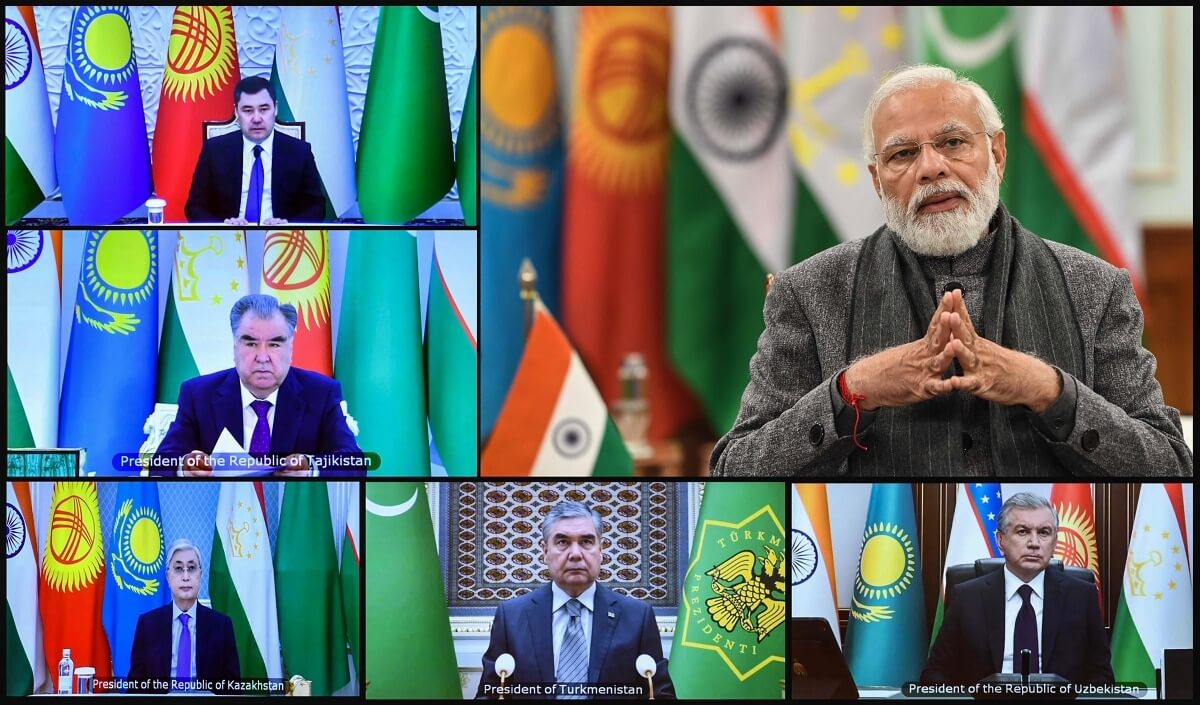On Thursday, the Indian Prime Minister (PM) Narendra Modi hosted the Presidents of the five Central Asian countries – Kazakhstan, Kyrgyzstan, Tajikistan, Turkmenistan and Uzbekistan – for the first India-Central Asia Summit that aimed to further an “integrated approach” to regional cooperation between the countries.
Thursday’s virtual summit also marked 30 years of diplomatic relations between India and the Central Asian countries. Addressing the meet, PM Modi laid down the three “main objectives” of the summit. Modi said that the leaders aimed to underscore the importance of regional cooperation for “security and prosperity,” especially highlighting that Central Asia was critical for India’s vision of an “integrated and stable extended neighbourhood.” Secondly, he said that the meeting sought to establish mechanisms that would structure cooperation amongst several stakeholders, and lastly, to create an “ambitious roadmap” for their cooperation over the next 30 years.
As a result of the discussions, the leaders agreed to institutionalise such summits, which they agreed to conduct every two years. They also agreed to establish mechanisms to further bilateral engagements through their respective foreign ministers, trade ministers, culture ministers and secretaries of security councils. Furthermore, the leaders also agreed to set up an India-Central Asia Secretariat in New Delhi to facilitate these aforementioned mechanisms.
Apart from improving bilateral relations, they also agreed to focus on regional cooperation such as countering terrorism and setting up working groups to jointly develop the Chabahar port in Iran. Towards the end, the leaders discussed the ongoing humanitarian crisis in Afghanistan and agreed to cooperate for a “peace[ful], secure and stable” society. To achieve this, the leaders stressed the need to set up a “truly representative and inclusive government” to assist in humanitarian aid for the war-torn country.
The meeting is a part of India’s “Neighbourhood First Policy,” wherein India has been seeking to enhance cooperation with its Eastern neighbours such as Vietnam and its Arab allies like the United Arab Emirates. Central Asia forms a crucial part of this strategy, which is largely centred around strengthening and expanding India’s diplomatic and strategic presence.
Addressing the India-Central Asia Summit. https://t.co/HMhScJGI15
— Narendra Modi (@narendramodi) January 27, 2022
Cooperation with its Central Asian partners is also critical for India to counter China’s growing influence in the region. Over the past few years, China has been enhancing its diplomatic relations with its Central Asian partners. For instance, just two days before the Thursday summit, China hosted a similar leaders’ meeting with the Presidents of the five countries and vowed to provide them with 50 million COVID-19 vaccines and $500 million for infrastructure projects. Moreover, the five countries’ leaders are also scheduled to attend the Beijing-hosted Winter Olympics’ opening ceremony, which has been viewed as symbolic of their support for the event amid a West-led diplomatic boycott of the Games.

